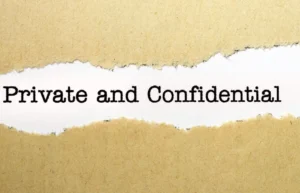The Ultimate Divorce Checklist: Legal, Financial & Emotional Steps to Take
Divorce is a major life transition—one that affects every part of your world, from your finances and legal status to your mental and emotional health. Whether you’re just considering separation or are in the middle of the legal process, having a clear, step-by-step roadmap can make the journey far less overwhelming. This ultimate checklist is designed to guide you through the legal, financial, and emotional stages of divorce, helping you prepare, organize, and protect yourself throughout the process.
If you’re unsure about how to start or what steps to take first, consulting a Marietta divorce lawyer can offer clarity and peace of mind from the very beginning.
Step 1: Get Mentally and Emotionally Prepared
Before anything else, it’s essential to prepare yourself emotionally for what lies ahead. Divorce is not just a legal breakup; it’s a deep personal and emotional separation that can stir grief, fear, anger, or even relief.
Emotional Preparation Tips:
- Acknowledge Your Emotions – Suppressing feelings will only prolong your healing. It’s okay to grieve the end of a relationship.
- Seek Counseling or Therapy – A professional can help you work through your emotions and build resilience.
- Confide in Trusted People – Talk to friends or family who support you without judgment.
- Establish Boundaries – Especially if you’re still living with your spouse. Emotional distance can protect your well-being.
Taking care of your mental health early on ensures you’re in a stronger position to make logical and informed decisions later.
Step 2: Consult a Divorce Lawyer Early
Even if you’re considering an amicable separation, talking to an attorney early helps you understand your rights and obligations. A Marietta divorce lawyer or any qualified family law attorney will provide the legal perspective you need to navigate the complexities of divorce law.
What to Ask Your Lawyer:
- What’s the divorce process like in my state?
- What are my rights concerning property, custody, and support?
- What documents should I start gathering?
- What should I avoid doing during this time?
Even one initial consultation can help you avoid costly mistakes down the road.
Step 3: Gather and Organize Key Documents
Having your financial and personal paperwork in order is crucial. It can speed up the process and give your legal team the tools they need to protect your interests.
Essential Documents to Collect:
- Marriage certificate
- Prenuptial or postnuptial agreements
- Tax returns (last 3–5 years)
- Pay stubs or income statements
- Bank account statements
- Retirement and investment account records
- Mortgage and property deeds
- Loan documents and credit card statements
- Insurance policies
- A detailed list of assets and debts
Create digital and hard copies of all important documents and store them securely.
Step 4: Understand Your Financial Picture
Divorce has a significant financial impact, so understanding your current financial situation and future needs is essential.
Financial To-Dos:
- Create a Post-Divorce Budget – Estimate your living expenses and income after the separation.
- Open Individual Bank Accounts – If you share accounts, begin separating your finances.
- Check Your Credit Report – Look for joint debts or issues you may be unaware of.
- Meet a Financial Advisor – They can help you plan for alimony, child support, asset division, and retirement.
Being financially proactive prevents surprises and strengthens your negotiation position.
Step 5: Focus on Custody and Parenting Plans (If You Have Children)
If children are involved, your parenting decisions must be focused on their best interests. Courts evaluate both parents’ involvement, living arrangements, and the child’s emotional well-being.
What to Prepare:
- Draft a Parenting Plan – Outline custody, visitation schedules, holidays, and decision-making responsibilities.
- Prioritize Co-Parenting – Keep communication child-focused and consistent.
- Consider Counseling for Kids – A neutral third party can help children cope with the transition.
- Document Parenting Roles – Keep records that show your involvement in your child’s life.
Your ability to cooperate and prioritize your child’s needs will weigh heavily in custody decisions.
Step 6: Explore Mediation and Settlement Options
Litigation isn’t always the best (or only) way to finalize a divorce. Many couples benefit from alternative dispute resolution methods that save time, money, and emotional energy.
Pros of Mediation:
- Confidential and private
- Often faster and cheaper than court
- Encourages cooperative agreements
- Reduces long-term conflict
Discuss mediation or collaborative divorce with your attorney to see if it’s a viable path for your situation.
Step 7: Protect Your Legal and Digital Life
In today’s world, your digital footprint and legal documents need to be secured during a divorce.
Legal & Digital Protection Tips:
- Update Passwords – Email, banking, social media, and shared accounts.
- Change Legal Documents – Wills, power of attorney, healthcare proxies, and beneficiaries.
- Secure Your Devices – Make sure your phone and computer are private.
- Stop Sharing Cloud Storage – Disable shared drives or cloud access that contains personal info.
Protecting your digital identity is just as important as protecting physical assets.
Step 8: Finalize the Divorce Properly
When you and your spouse reach an agreement—or the court makes final decisions—you’ll receive a divorce decree. This document is legally binding and outlines all terms of the divorce.
Key Finalization Tips:
- Review the decree thoroughly with your lawyer.
- Confirm child support, custody, and alimony terms.
- Ensure all property transfers are completed.
- Update your name or marital status with banks, government agencies, and employers if needed.
Make sure all follow-ups and loose ends are handled promptly.
Step 9: Begin Rebuilding Your Life
The paperwork might be over, but healing and rebuilding take time. Focus on personal growth, stability, and moving forward in a healthy way.
Post-Divorce Life Checklist:
- Build a strong support system
- Re-enter the workforce or pursue education if needed
- Set new financial goals
- Consider therapy or life coaching
- Reconnect with hobbies and interests
Divorce is the end of one chapter—but it’s also the start of another, often more empowered one.
Final Thoughts
Going through a divorce isn’t just about legal filings and court dates—it’s about restructuring your life. By following this comprehensive divorce checklist, you’ll be better prepared legally, financially, and emotionally. Every step you take now lays the foundation for a healthier and more stable future.
And remember: you don’t have to do this alone. Seeking professional support, whether from a financial advisor, therapist, or Marietta divorce lawyer, can give you the clarity and strength needed to navigate divorce with confidence.





















